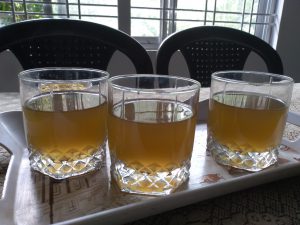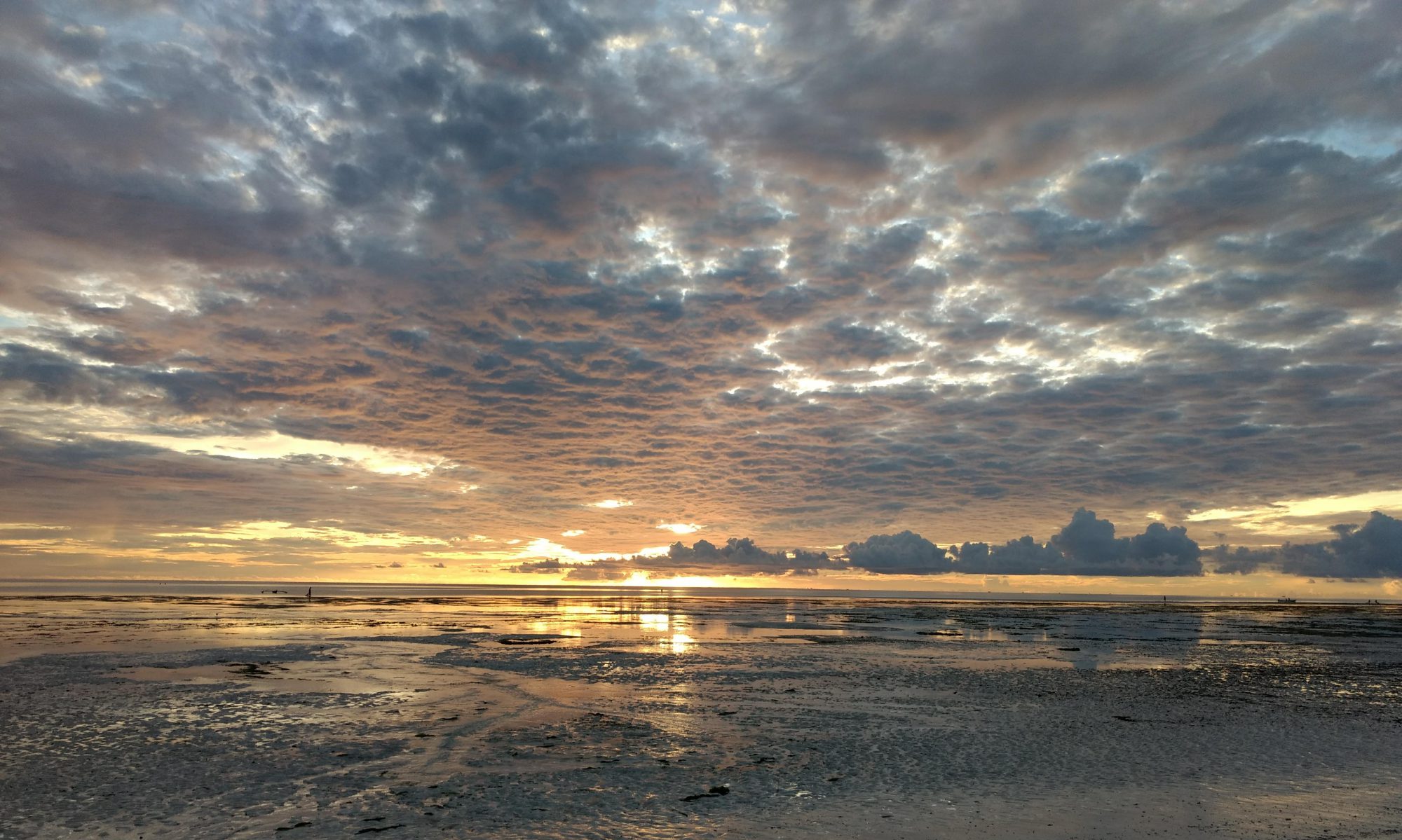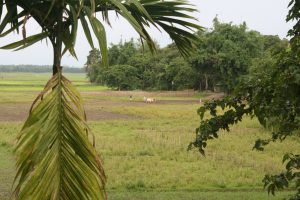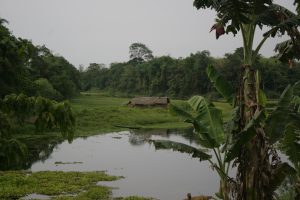I know, I know, I have been quiet recently. Actually, it is not because I am lazy – believe it or not – or because nothing happened. On the contrary, a lot happened and the past weeks have included lots of interesting and inspiring interviews, the classic traveller’s stomach problems, six-hours train rides and bum-hurting tuktuk rides on a muddy river island.
So, how do I cover all this in one single blog post? The easy solution: I don’t 😉 After the bihu festivities, the rest of April mainly went with conducting interviews and transcribing so these days I will just mention quickly. The women activists I have met here are all very informative and willing to talk and I have found a very diverse group of participants spanning from the well-educated middle class lady to the village woman who has seen too much violence and torture during the past decades’ insurgencies in Assam. They have all been incredibly open to talk to me so the past weeks have been busy but effective.
But now, after conducting my interviews and half of the transcriptions, it is time for the fun stuff! The past days I have spent outside my safe base in Guwahati more specifically, in Jorhat in Upper Assam, where I first was introduced to one of the coolest ladies I have met and her organization Purva Bharati Educational Trust (PBET) and later, visited a tea garden and got to meet the strong activists of the local adivasi women’s association. Besides interesting stories, the tea garden visit also included stunning views over green fields and a long-awaited tranquility after one month in bustling Guwahati.
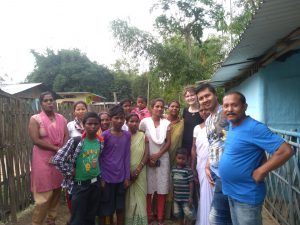
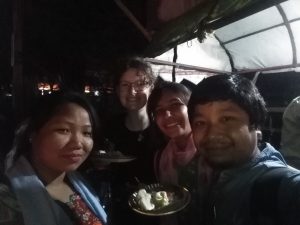
In the weekend, I went to Majuli – a small, but nevertheless Asia’s biggest, river island in the mighty Brahmaputra. The island is famous for its satras (monasteries for monks following the Vaishnavite branch of Hindu religion). One of my participants told me about this form of Hinduism in the interview so I was very excited for experiencing the culture that, according to her, created a more liberal caste system and better living conditions for women in Assam (I have my thoughts about the caste system, including the Assamese, but I will leave that discussion out of the blog).
After arriving on the island, I soon discovered that exploring Majuli and the satras is just easier with your own vehicle and a local guide as both public transport and English-speakers are scarce. However, I tried to make the most of it by hitching a ride on all possible vehicles – scooters, cars and tractors – to make it to the first satra (I also accidently paid 200 rupees for a ride but luckily most people were too nice to take advantage of a confused tourist, who did not do her research before going).

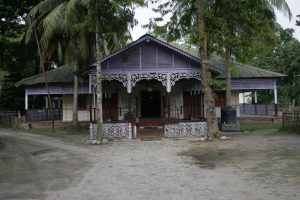
My whole trip changed completely when I was on my way back from visiting the first satra, out of the five I planned to, and a car stopped right by my side. The door was opened and a father, mother and two children gestured at me to make me get in. Few minutes later I found myself drinking tea in the family’s home and desperately trying to understand Assamese chit-chat from the cutest 4-year-old boy, who did not seem to care about my limited vocabulary and confused sign language.
I spent the rest of the weekend with Prasanta and Banalata and their children. After knowing me for approximately one hour, they offered me to stay in their house and show me around the island. Prasanta took me to three more satras and a tribal Mishing village, where one of his friends invited for spicy but delicious lunch and home-made rice beer. I also had the pleasure of meeting Prasanta and Banalata’s neighbors and drinking endless amounts of tea. I was really sad to leave Majuli after just two days but back in Jorhat, the reunion with Smita, Arup and Sinumoni from the awesome PBET crew (and some more rice beer) cheered me up.

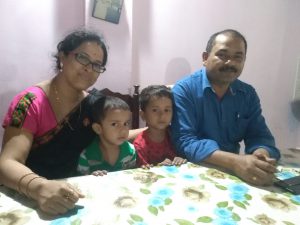
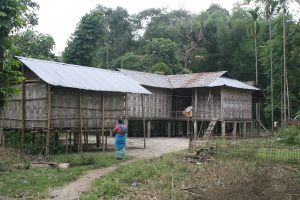
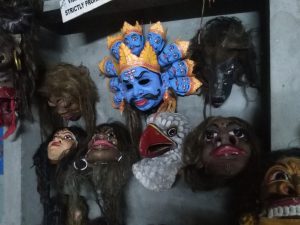
I think it is safe to say that the hospitality and helpfulness of Assamese people is the most overwhelming and heart-warming I have experienced yet. Everybody has welcomed me like a member of their own family and shared their home, their food and lots of smiles with me. I am already planning another trip to Jorhat and Majuli just to meet these treasures again and I STRONGLY recommend everyone travelling to India to make a trip to the North East! I simply don’t have enough words for expressing how good the Assamese people have been to me.
